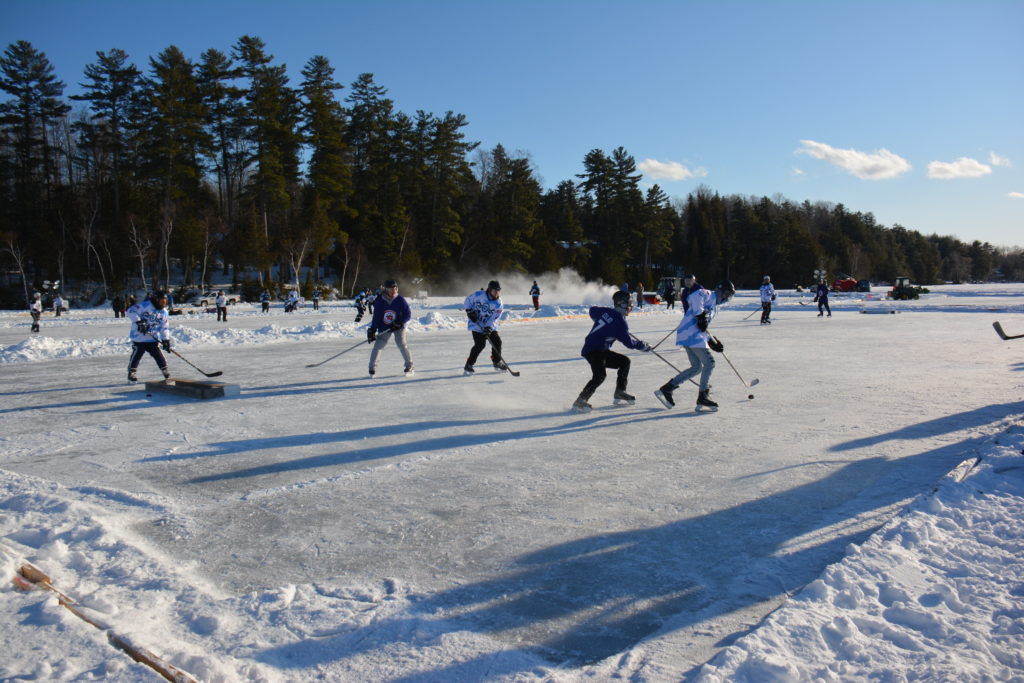On Assignment: The Maine Ingredients
A state in touch with its surroundings makes an appealing host for sports events
Posted On: February 13, 2020 By : Maine may be off in a corner, but that doesn’t mean event organizers should treat it any less seriously as a destination for sports events. That’s something I saw firsthand on a recent trip to the Pine Tree State to witness three events, each of which speaks to the resources available in the region and their connection to spectators and participants.
Maine may be off in a corner, but that doesn’t mean event organizers should treat it any less seriously as a destination for sports events. That’s something I saw firsthand on a recent trip to the Pine Tree State to witness three events, each of which speaks to the resources available in the region and their connection to spectators and participants.
Tourism and travel make up one of the state’s largest industries, said Sheila Brennan Nee, director of the Maine Sports Commission, which was founded in 2012 to help promote and grow existing sports events while also attracting new events to the state across all four seasons. According to the Maine Office of Tourism, the industry supports 110,000 jobs in the state, or one out of every six jobs. Despite the challenge of Maine not collecting any hotel or motel bed tax revenue that would typically be used for marketing and promotion, the state experienced a 10 percent increase in overnight visitation in 2018 from the year prior, with direct spending by overnight visitors of more than $4.7 billion, according to the tourism office..
Working with two convention bureaus in Portland and Bangor, and several chambers of commerce in other communities, Nee has been spreading the word about what Maine can do for events. And while it has plenty of natural resources like miles of coastline and hundreds of lakes and rivers, the state’s metropolitan areas have plenty of hosting capabilities as well.
The range of events taking place over one weekend in early February are indicative of that growth. And while most of the state’s visitation occurs in the summer and during fall leaf-viewing season, there is evidence that the winter months are bringing people as well, even if that requires a few extra layers of clothing.
Charting a Course
Outdoor elements are Maine’s main attraction. But indoor sports are thriving in Portland, the state’s largest city with a population of about 65,000.
In 2018, the arrival of the ECHL Maine Mariners ended a two-year professional hockey drought after the city’s previous AHL team, the Pirates, left for Springfield, Massachusetts. The Mariners (also the name of a previous team that played in the city from 1977-1992) have a new look and a new logo that reflects the state.
The team owed by Comcast Spectacor now plays 36 home games at downtown’s Cross Insurance Arena, which has undergone renovations the past few years to include hospitality terraces in two of the arena’s four corners and upgraded entry points. The arena is also across the street from the Holiday Inn by the Bay, which often houses visiting teams, one of many hotels in the downtown area.
While the Double-A affiliate of the NHL’s New York Rangers has proved successful on the ice, its entire look and branding are indicative of a team that is in touch with the community. For starters, the Mariners’ name was the result of overwhelming response from local fans to honor the team that had previously played in the city, said Adam Goldberg, the Mariners’ vice president of business operations.

But Goldberg said considerable thought went into the overall branding. “At the time, we didn’t have an affiliate, so we had the freedom to choose our colors and choose our logo,” he said as the team took on the Worcester Railers on a Friday night that brought fans—including many families—to the 6,200-seat arena. “That was something that was really nice for us to have the freedom to do. We’re the Mariners, but it’s the new Mariners, something new for fans to see.”
For the colors, the team went with blue and green to represent the ocean and the state’s forestry. As for the logo, an “M” and a trident shaped like an “E” spell out Maine’s postal abbreviation. But look closer and you’ll see the subtle signs of a team in touch with its home. The tip of the trident spear is a pine tree in a nod to the state symbol that also appears on the state flag. The trident also features a star, called a “Dirigo Star,” that reflects the state motto and is Latin for “I lead.” And in the shadows of the “M” there also appears the silhouette of a lighthouse, a nod to the state’s maritime history and the 65 lighthouses that dot the coast.
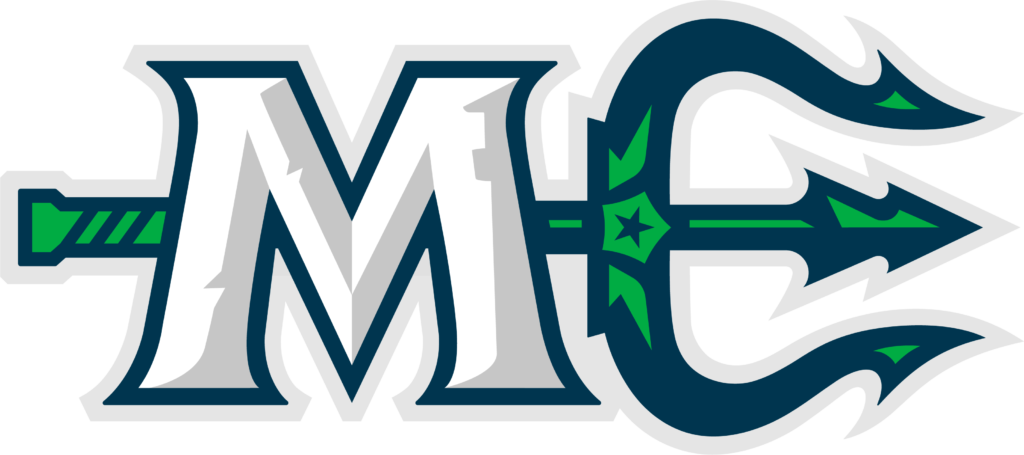
Goldberg, one of 11 team employees, said the team has not been tough to market to the community. “Normally there are six degrees of separation,” he said. “But I think Maine has two degrees of separation. It’s a lot of word of mouth. It has a lot of ‘prove it to me.’ You have to build trust and show you care about the fan base, and people start to buy in and support you and trust you.”
Don’t Look Down
Inside events are great, especially when it’s cold outside. But that same wintry atmosphere in Maine brings visitors each year to participate recreationally in snowboarding or alpine and Nordic skiing at the state’s mountain venues.
And one of those venues hosts one of the most unusual events someone can experience: the U.S. National Toboggan Championships. The name alone is fantastic considering the organizers don’t really have any competition in the organized, competitive toboggan racing space. (The event’s website describes it as “the only organized traditional wood toboggan race in the country, most likely the world.”)
The event has been held for 30 years in Camden, a coastal town about an hour north of Portland, at the Camden Snow Bowl, a municipally owned ski hill. The toboggan run dates back to 1936 and has been upgraded several times over the years. Today, the chute is 400 feet long with a 70-foot vertical drop that sends the brave at heart shooting down and deposits them below on the frozen Hosmer pond, where momentum often can take them a quarter-mile away from the end of the run.
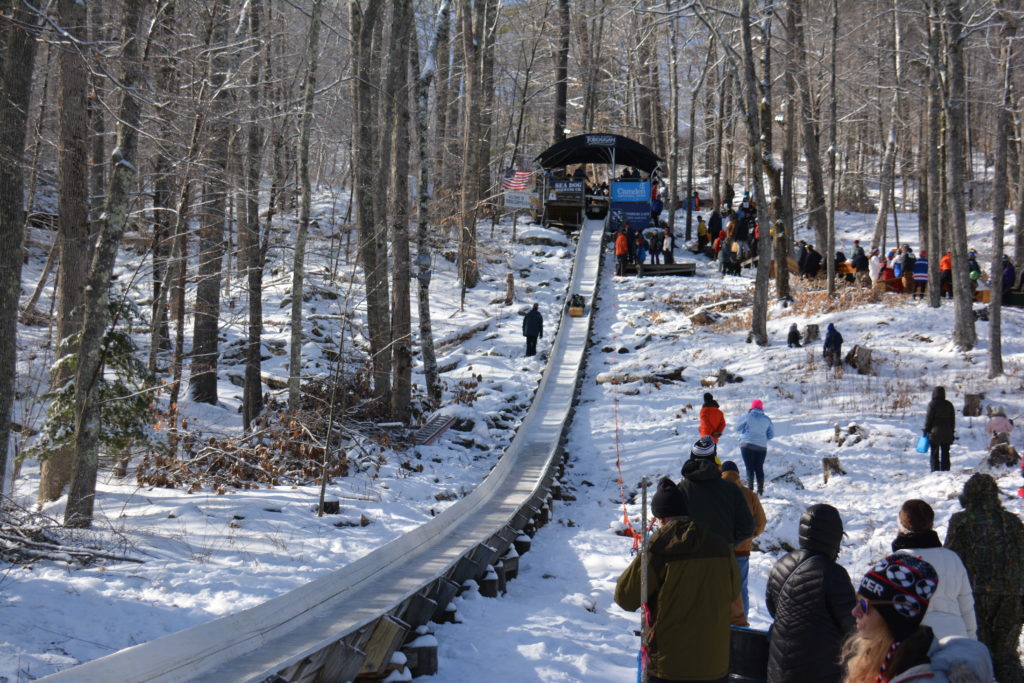
There are a phenomenal number of divisions in this competition. Divisions include 2-person, 3-person, 4-person and experimental, but awards also are given for fastest time overall, fastest all-female team, fastest students, best-crafted toboggan, oldest team and best costume.
Did we mention costumes? Yes, there are plenty of them. In fact, those who dress up get to take part in a parade.

The most clever team might have been Tom Sleddy and the Heartbreakers, whose members dressed up as those in the band and were themselves an indication of how far people travel for the event. Jeff Goss of relatively close Portsmouth, New Hampshire, came with four friends from Knoxville, Tennessee. Goss and his New Hampshire friends had met the Tennessee contingent as mutual fans at previous championships, and this year they planned to take their first run down the hill after years of being casual onlookers. The Tennessee group had already spent two days in Millinocket, Maine, and planned to spend several more in Portland, turning the championships into a weeklong tourism experience.
“It’s picturesque and it’s beautiful,” Goss said of what brings him back every year. “It’s just great. Some people go to Florida and do this on the beach, and some people come here and stand in the cold and do the same kind of stuff. It’s a cool event.”
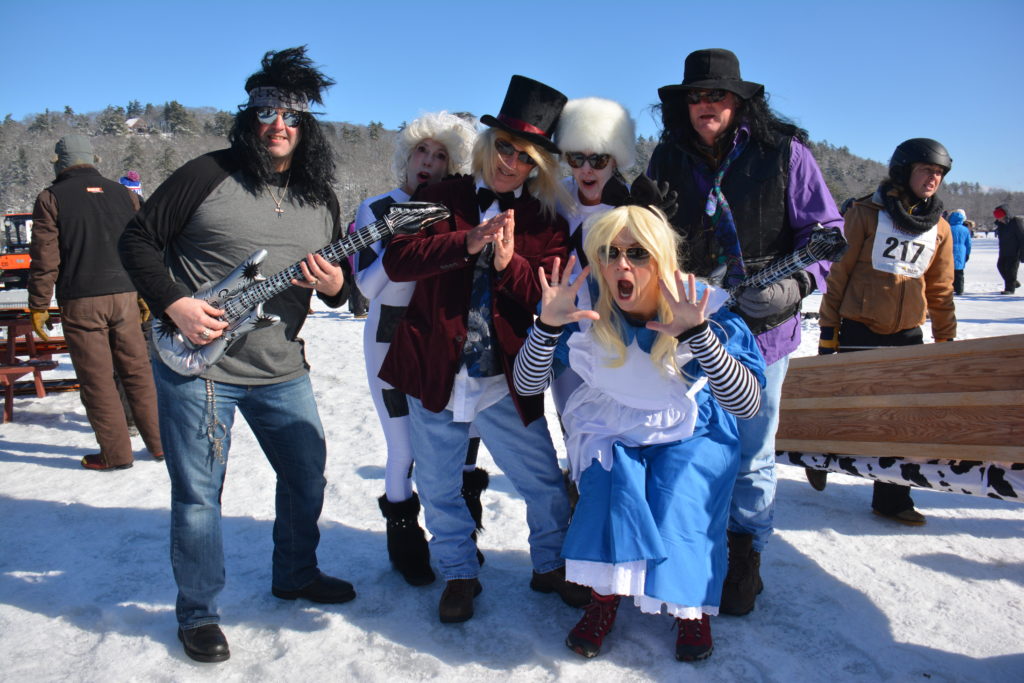
On Frozen Pond
On the same weekend that thousands were making their pilgrimage to Camden for the sledding, another hour or so inland near the state capital of Augusta was another outdoor event that is seeing considerable growth.
The Maine Pond Hockey Classic began in 2013 and has moved locations a few times until settling into its current home on Messalonskee Lake, also known as Snow Pond, in Sidney, Maine. This year, 83 teams with about 1,000 players came to play hockey, with some traveling from areas such as Illinois, Michigan, Pennsylvania and New Jersey. Another team traveled south from Nova Scotia, Canada.
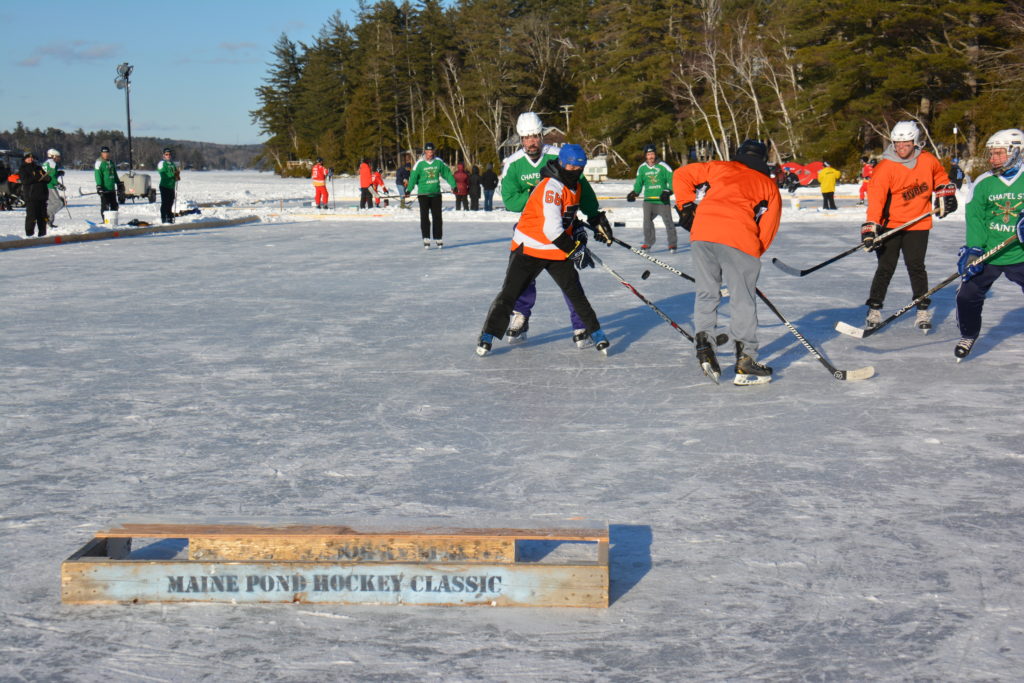
Proceeds from the event, plus a polar plunge into the icy waters of the pond, benefit the local Alfond Youth and Community Center, which is the only club in the nation to house a local Boys & Girls Club and the YMCA in one location. Tournament Director Patrick Guerette, who is also the center’s chief operating officer, said the idea began after he read an article about another pond hockey event.
“I met with our CEO and he was like, ‘Do you have any ideas for fundraising?’” Guerette recalled. “Since I was new to the organization, I had just read an article in USA Hockey Magazine about a pond hockey tournament, so I was like, ‘I don’t know, maybe a pond hockey tournament.’”
There were 14 teams on four rinks the first year, growing to 24 teams the following year. This year’s contest featured 10 rinks on the frozen pond, and despite an ice storm on the first of three days and wind chills near 0 degrees the second day, participants were enjoying their time in the elements. And if they looked up, they could even see bald eagles circling over the action, surely wondering what in the world was going on below.
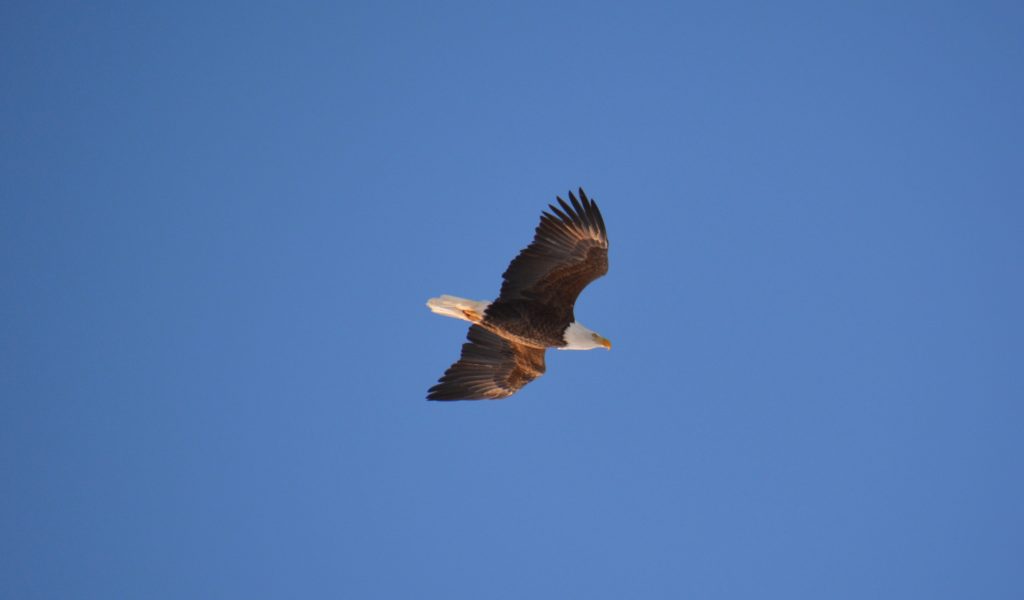
Those participating had the chance to warm up in covered VIP tents along the shore of the pond, or in the lodges of the Snow Pond Center for the Arts, whose property is along the lake. There also was a concert in a nearby town featuring a John Mellencamp cover band, with proceeds going toward the youth center.
Guerette noted that the team from Nova Scotia had proposed a unified division next year with Special Olympics athletes, including several that would be willing to travel from Canada. “We’re going to talk,” Guerette said. “We’re always figuring out how to make it bigger and better.”
That, indeed, is indicative of the approach being taken across Maine, a state worth taking a look at regardless of the season.
